|
Don Logan enjoyed a long career in the intelligence community before moving into the world of investment banking. He resides in Chicago and blissfully spends his time writing gritty crime thrillers about despicable people doing despicable things. THE LAST LOOK He flinched at the loud thud. The snowball hit the wall about two or three feet above his head, just missing the window. Hell, he should be used to it by now, but it still gets him every time.
Goddamn kids. He had half a mind to go out there and yell at the little bastards. Teach ‘em a lesson. Aw hell, what good would that do? His back was acting up again. Besides, it was too damn cold out there for that today. Especially today. He stubbed out the last smoke and knocked back the final swallow of whisky. Stumbling in to the kitchenette, he tossed the empty bottle in the trash. Right next to the others. Back on the couch, he twisted off the gold band and tossed it on the table. He watched it spin as he rubbed the smooth spot on his finger. That thing hadn’t been off his hand in thirty years. He scratched the back of his neck and gave the trailer a final once over, wondering if someone else would move in. He snorted. Hell no, they’ll just haul it off to the junkyard, into the crusher. They’re always hard to sell, after… Deep breath. This won’t hurt. Should be over in a split second. A flash and then… black. At least that's what they say. The only choice left was where: temple, mouth, or chin? He tried mouth first. Hit a tooth on the way in. Plan B. Up to the temple. Eyes shut tight, hand shaking. Come on, don’t wimp out again. Do it. Shit. One last look around. One squeeze and the pain will be gone. It’ll all be over... Fuck it. # What? Where am I? The halls were filled with laughter and anticipation, and the floors were covered in paper. The banner on the wall read: “Congratulations Class of ’78.” Jesus, the place looks the same as it did back then. Time to round up Sandy and get the hell out of here. Summer awaits. He found her two halls over, standing outside her locker in that old cheerleader outfit. She was giving out hugs and signing yearbooks. God, she was cute as ever. “Smith!” Coach? No, it couldn’t be. He died a long time ago. But there he was, standing in the hall, hands on his hips, whistle around his neck. Beer gut hanging over his belt. Shit it is him. “Hey, Coach." “You keep your nose clean this summer, understand me mister? And don’t forget, football practice starts the second week of August.” Practice? What the hell was he talking about? Crazy sonofabitch. He always was a ball buster. Wait a minute. Where did he go? He wrapped his arm around Sandy’s waist and pulled her close. She looked up at him and smiled. Such a sweet smile. # Whoa, what happened? Stucco ceiling. Green curtains. TV on top of the oak dresser. It was his old house. Our house. The alarm clock buzzed and Sandy kicked his leg. “Get up or you’ll be late for work.” Her face dropped back onto the pillow. “And don’t wake up the baby.” He checked the clock. Oh shit. Up and into the bathroom. He dropped the white discs in the glass, quick shower, swallowed four aspirin with the fizz. Hell, I must have done that a million times. # Another flash. He saw the Chicago skyline in the distance through the thick window. The train jerked to a stop and the Conductor barked something about a wreck on the tracks. Late again. All those hours on the train—we should never have moved out to the burbs. # Big Jerry was waiting for him outside his office, grimace on his face, arms crossed. What an asshole. He checked the clock: Four thirty. Men's room stall. A quick bump from the vial, and then he was out on the street. # The blare of the jukebox and the smell of stale beer and cigarettes hit him. He waved to the bartender. “Hey, Tony.” “You’re early, Smitty. The usual?” He slides onto the barstool. “You got it. Dirty, extra olives. Guy’s gotta eat, right?” Jesus, did I do that every night? # He was staring at a slip of paper. Oh no, please not here. The number two in the third at Arlington was a closer. It was also the key horse in his Pick 3. Ten-to-one odds was a little steep. He looked down at the letter on the bar, next to his drink. It read: FINAL NOTICE. Damn, I loved that car. His cellphone rattled just as the horses lurched out of the gate. He checked to see who it was. “Hi, honey. What’s up?” “Hey, Dad. Are you coming to dinner tomorrow night? It’s your favorite—Prime Rib.” She sang the last part. She liked to do that. “Is your mother going to be there?” Pause. “Yes, of course she is.” “Will he be there?” “Dad, come on. We’ve talked about this. They’ve been married for, like, seven years now. You need to get over it.” “I’ll see.” He looked up at the television screen, the one with the yellow burn-in. “Come on two—push.” “What? Dad, are you at that place?” Shit. “Uh, ho, honey—I’m, um, at home, watching television.” Betting slips became confetti, and a loud groan erupted in the room. No way she didn’t hear that. “Damnit Dad.” Click. Maybe I’ll miss her the most. # He was back in his trailer, looking down at his body from the ceiling. Damn it's a mess. Hope it’s not Sandy who finds me. It didn’t have to come to this, but at least now he knew why. He should have been there for her, for them. Maybe he wouldn't have ended up here, alone. Like… that. Man, I wish I hadn’t taken off that ring. Another thud. Goddamn kids.
0 Comments
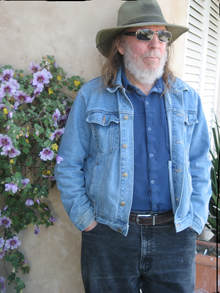 Terry Sanville lives in San Luis Obispo, California with his artist-poet wife (his in-house editor) and one skittery cat (his in-house critic). He writes full time, producing short stories, essays, poems, and novels. Since 2005, his short stories have been accepted by more than 250 literary and commercial journals, magazines, and anthologies including The Potomac Review, The Bitter Oleander, Shenandoah, and Conclave: A Journal of Character. He was nominated twice for Pushcart Prizes for his stories “The Sweeper” and “The Garage.” Terry is a retired urban planner and an accomplished jazz and blues guitarist – who once played with a symphony orchestra backing up jazz legend George Shearing. A Time to Believe Sasha pushes open the screen and slips onto the ratty porch couch. With a hand shielding her eyes she stares into the distance. Far across the flat Lost Hills Oilfields, a van streams toward her, chased by a rooster tail of dust. She glances at her wristwatch. He’s early today...beat the kids home from school. Ducking back inside their double-wide, she checks the fridge to make sure it’s stocked with beer, then stares at herself in the hall mirror. Christ, five years in this place and I look like I’m right outta the Grapes of Wrath.
Sasha returns to the porch and watches her husband advance. The minutes tick by and Jerry doesn’t seem to get any closer. The shimmering heat distorts distances. The van turns off Brown Material Road onto the highway and streaks toward their trailer at the western edge of town. She raises her bird-watching glasses and studies her man: bare armed, close shorn and wearing a battered Angels baseball cap. He looks horny…better get him inside before he takes me right here on the porch...or maybe it’s just me. She hurries to the kitchen and returns with a cold Bud longneck just as he pulls up. Standing on the edge, her dress blowing in the wind, she waves. “Hey babe, how was your day?” He grins, “All right, I guess. Wasn’t much goin’ on, so I came home.” “I’m glad you did.” “How long till the girls get here?” “Half an hour, maybe more. We’ve got time.” Jerry takes the beer and pushes inside. She follows him to the back bedroom. He smells of sweat and tastes salty. She’s grateful for his touch and their time alone, before the rumble of the school bus makes them scramble to get dressed, before their daughters’ high-pitched voices fill their home. They move to the living room where Jerry bends to receive hugs and kisses on the cheek from Linda and pipsqueak Marie. “You stink funny,” Marie complains. Sasha and Jerry look at each other and laugh. He slumps onto the sofa and clicks on the sports channel with the sound turned off. Sasha asks, “So what did you girls learn in school today?” “Nothin’ much,” Marie mumbles. “That’s nothING much,” Sasha corrects her and the second-grader rolls her eyes. Linda sits next to her father. “Miss Shaffer, ya know, my science teacher, talked about global warming.” Jerry lets out a low groan and takes a pull from his beer. “Go ahead, Linda, tell us what she said.” “She said burning oil, gas and coal is causing the, ya know, earth to get hotter and the ice caps to melt.” “What kinda junk they teachin’ y’all in fifth grade?” Jerry asks. Linda makes a face at her father. Marie giggles. “It’s science, Daddy. Smart people around the world have been studying the weather and…” “It’s bull, I tell ya, a buncha Chinese propaganda. It gets hot sometimes…that’s natural. It’s happened before.” “Yes, but the scientists have done lots of studies that show–” “Yeah, all of them paid for by those polar bear-lovin’ fools in Washington. It’s all a big hoax.” Linda’s cheeks redden. “But Daddy, Miss Shaffer has been teaching us how science works.” “Linda, that’s enough,” Sasha says. Jerry grins and jabs his daughter in the ribs. “I’ll tell ya what works, kiddo, it’s me workin’ the oilfields. It pays our mortgage, puts food on the table, buys your school clothes. Do ya think any of those eco-freaks care about that?” “Come on, Jerry. Ease up.” Sasha motions to her daughters to help her set the table. “They’ve got to learn about science.” Jerry mutters something, peels off his shirt, and turns the fan in his direction. Sasha retrieves another beer from the kitchen. She massages his shoulders, pressing her thumbs into his tight muscles, feeling them shudder, then relax. After a few minutes, she stops. “How long have you had this?” she asks, touching a tiny reddish spot on the back of his neck, just inside the hairline. “What you talkin’ about?” “This thing on your neck. It looks like a freckle.” He rubs a hand across the spot. “I don’t feel nothin’. Probably just a skeeter bite.” “Yes, maybe. I’ll put some cream on it.” “Thanks. I got spots all over this ole bod. One more’s not gonna make a difference.” “Ooooh, Daddy, that’s gross,” Linda says. “My gym teacher always wears a big hat when she goes outside. Says she burns easy and gets freckles.” “There you go again, talkin’ about those know-it-all teachers.” “Jerry, don’t make fun of them, please.” “Yeah, yeah, sorry.” He pushes himself up and goes outside to smoke a cigarette, water his pampered apple and peach trees, and set gopher traps. Summer rolls into fall. The tule fog socks in the San Joaquin, making driving treacherous. It engulfs all but the very tops of the few derricks among the hundreds of pumpjacks in the Lost Hills Oilfield. The morning after Thanksgiving, Jerry lies in bed next to Sasha, the blankets pulled to his chin, teeth chattering. Sasha clicks on the light. “Are you okay? I can feel the bed shake.” “I’ve got these chills, then I sweat like a pig.” “Come on. We’re going to the clinic in Wasco.” “Forget it. It’ll go away. It did the last time.” “You’ve had this before?” “Yeah. Must be some kinda flu. But I feel okay, just a little tired.” Three days later, Jerry wakes gasping for breath with a high fever. Sasha packs the kids off to school, then drives the thirty miles to the clinic. An Asian doctor gives Jerry a complete physical. “Well, what do you think?” Sasha asks. “I can’t tell much without a biopsy. But you need to get that lesion on his neck checked out right now.” “What…what do you think it is?” “I don’t want to guess. His lungs seem clear, but that shortness of breath could mean something else. They’ll know more when they remove the growth and do a biopsy and various scans. How long has that spot on his neck been there?” Jerry studies his shoes, seems content to let Sasha do the talking. “Maybe six months.” “Has it changed?” “Well, he says it feels like it’s more raised.” “I’ve phoned in orders to Delano Medical Center. They’re expecting you. The doctors there will take care of him. They’ll be able to answer your questions.” “But, our daughters are in school and we don’t have…” “I suggest you call a neighbor or the school. You need to get this looked at today.” In half an hour Jerry and Sasha pull into the hospital parking lot and check in. The nurses and PAs spirit him away. She blows him a kiss as he disappears behind swinging doors. He looks scared… I wish they’d let me stay with him. She sits alone in the waiting room, fingering her cell and constantly checking the time. Their neighbors, a young couple she hardly knows, agree to take the girls. After a long wait, a nurse escorts her to a room where Jerry lies in bed, tubes protruding from his arms. He flashes her a weak smile. “Don’ look so worried, hon. They cut it off me and I already feel better. I’m jus’ so damn tired.” He yawns and closes his eyes. A salt-and-pepper-haired doctor wearing bifocals and a spotless white frock joins them. “Hello, I’m Dr. Spanner. Are you Jerry’s wife?” “Yes, I’m Sasha. Will you tell me what’s going on?” “Why don’t we let your husband rest and I’ll talk to you in my office. Come this way.” She follows him to a shoebox-sized room and sits in the only chair opposite his desk. Dr. Spanner clears his throat. “I won’t keep you long. We’ll know more about Jerry’s condition and prognosis when the biopsy comes back in about three days. He can go home in a couple of hours. But you and Jerry must come back to see me at end of this week.” Sasha wraps her arms around herself and shakes her head. “The poor guy’s scared. If we leave here now, I might not be able to get him back. Can’t you tell me something? Can’t you keep him here?” Dr. Spanner loosens his tie and leans back in his chair, as if trying to gain distance from her. “Well…I’ve seen many cases like this before…and the scans show us a lot. I think you need to prepare your husband and your family.” “What…what do you mean, prepare?” “Jerry is showing all the signs of Stage IV melanoma that’s spread to the lymph nodes throughout his body…and to his lungs. “What does Stage IV mean?” “It means the disease is advanced…and very serious.” “But…but he’s been going to work…hasn’t complained about anything.” “That’s often the case until the cancer invades the vital organs. In your husband’s case, it’s the lungs, and most probably his heart.” “But…but what are his chances?” The doctor sucks in a deep breath. “Not very good, less than a ten percent chance of surviving five years.” Sasha leans forward and sobs. Her tears drip onto the tile floor. “I’m so sorry, ma’am. There is always surgery, chemotherapy, and some new drugs. But those would only slightly delay the disease and make his last days very uncomfortable. We can control the pain but…” Sasha chokes on sobs that threaten to shake her body apart. Minutes pass before she quiets. “If…if only he’d come in right away.” “Yes, studies show the cure rate is very high if it’s caught early.” “Well, Jerry doesn’t believe in scientific studies, thinks they’re rigged.” “That’s unfortunate.” The doctor stares at his hands. “I’m afraid it’s time for your husband to believe.” Sasha wipes the tears from her cheeks. “That time has already passed.”  Ayşe Tekşen currently lives in Ankara, Turkey where she also works as a research assistant at the Department of Foreign Language Education, Middle East Technical University. Her work appeared in Gravel, After the Pause, The Write Launch, and Uut Poetry. Two Women Two women were waiting at the bus stop; the older one was calling the younger one ablacım[*]. Zehra was also waiting for her bus at the bus stop. The moment she saw them and heard that the older one called the younger one ablacım, the first thing she thought of was the possibility of their being prostitutes. The older one was wearing a saxe coat and dark sunglasses which were too big for her complexion. She had pitch black short hair which most probably was not natural. She was wearing a tight short black mini-skirt on her thick legs. She had this light air apparent in her behaviors. She seemed as if she did not care about anything else apart from herself and her own being in the world. The younger one was just the complete opposite of the older one. She was young and thin; she was so thin that Zehra thought if this girl would be standing up, the wind could easily drift her away. She had long and straight light brown hair. She was wearing a black tight on her thin, young legs which seemed to have walked more than it would be expected from the legs of a young woman at her age. She had a brown shirt on with green leaves on it, and every treasure she held under her clothes was sealed under a dark black coat. She was not carrying any purse as Zehra noticed, but she was holding a plastic bag on which it read the name of the brand DeFacto[†] in her white and tiny hands so tightly that it seemed as if it was the only thing left to hold onto in her painful and small world. She was twisting the edges of the plastic bag nervously in her hands. Her hazel eyes were fixed on the ground, while the older one kept herself busy with going up and down the pavement while waiting for the bus at the bus stop. They did not have anything between them that can be called as a proper communication as Zehra noticed. They were anything but close. And yet the older one kept calling the younger one ablacım all the time. The older one was wearing earbuds, and she was listening to music. She even advised the younger one, “You should definitely and definitely listen to this song, tamam mı[‡]? It’s a super cool song. I’ve been listening to it for how many days I can’t even remember now.” The younger one just gave the older one a hesitant nod and said, “Tamam[§] ablacım.” The older one seemed to be rejoiced at what she heard as she said, “I adore it when you call me ablacım; do you know this? I used to chaperon another girl in my older days, and whenever she needed anything she used to run to my arms and say to me, ‘Save me, ablacım. Please help me, ablacım.’ It was of course boosting my ego. When she did this, I used to feel so good that you can’t even imagine. It made me feel as if I was the only one in the whole world to save her. It kind of makes you feel as if you are that very person’s hero. And being the hero of a person… Ah, you know; it’s a very important job.” When she finished her speech, she approached the young girl. Caressing the girl’s beautiful long hair, she added, “Ablam benim[**].” The girl this time responded with a forced smile which formed two little dimples on her each cheek. The older one backed away, and by looking at the clock on her phone, implored the young girl not to stay too long at a particular place which Zehra didn’t have the opportunity to know the details of. Zehra could only hear that the older one said to the younger one in a different mood which Zehra thought a little bossy this time, “After you are finished, you will go directly to that other place. If your work seems to be longer than expected, then give me a call. Okay? You know what I mean!” When the bus approached the bus stop producing a dark exhaust smoke behind it, it turned out that Zehra and the other two women would take same bus. All three moved towards the door at the same time. Zehra, afraid of going into an argument with the older woman, said, “You go first.” Contrary to her expectation, the older woman responded in a very polite way with a gentle smile on her face, “No, please. You should go first. Please, I insist!” Surprised, Zehra accepted the offer and was the first one to get on the bus. The two other women followed her, and right behind Zehra’s seat they found two empty seats that were waiting for their owners. Zehra put her ear plugs in, and till she got off the bus at the very last stop she deprived herself of the two women’s conversation. During the journey they took together, what they talked about and what the other passengers thought of those two women remained unknown to her for ever. *** Zehra had an afternoon class that day at the university. The course was Introduction to Economics 101. She found the class boring in the extreme. As the smallest part of the economy, she failed to believe that she is able to make even a single little change in this corrupted world. She took a look around her. In the crowded lecture hall which was buzzing with the laptop screens of the other students and the fluorescent lights which filled the hall with neutralized, numb, and dull air she hated, she found it hard to focus on the professor’s lecture. She couldn’t help thinking about those two women she saw earlier that day. If they were really prostitutes, then this would mean they had a real job. They were part of this living economy. And yet no one bothered to mention their existence. Zehra found herself wondering what defines the occupation of prostitution. She thought, “Is there a recruiting system, a standard perhaps? Are they expected to look presentable in their work places and to show efficiency in using office programs?” No matter how much she wished to find her own thoughts funny, she failed to do so. She took another look at all those faces hidden behind the laptops. “Can any of those faces belong to a prostitute?” she asked herself. “How would I know? One didn’t live with a mark on his or her forehead,” she thought. She tried to track down the signs of a similarity between the world of the human crowd in this hall and that of those two women. She was surprised when she couldn’t find any. Most of those people sitting in the hall were speaking with a clean İstanbul Turkish, and along with Turkish they all spoke English fluently. Some of them even spoke a third language. She remembered that the older one of the women was talking with that thick Anatolian accent. Zehra thought that she was probably from a smaller city in central Turkey. “What sort of stories, what treasures do they keep hidden in their worlds?” she wondered. Then she realized that she had never been to a house of prostitution. “How many of those people around her who were hitting the keys on their laptops nervously had been to a house of prostitution?” she asked herself. While she was still busy struggling with all those unanswered questions in her mind, the professor announced that they came to the end of their class and freed the restless birds out of the classroom. *** The sun was about to set filling the campus with beautiful shades of orange and red in this dry and cold winter weather when she found her way out of the faculty building. She could hear the seagulls’ voices crying out on the sea. She decided to take the ferryboat instead of the bus to cross to the Anatolian side of İstanbul. When she reached the Beşiktaş ferry terminal, she began waiting for the ferryboat which would carry her to Kadıköy. The clock at the terminal showed 5:30 p.m. and there were ten more minutes till the ferry would arrive. When the ferry approached the pier and prepared to welcome aboard all those people waiting for her, Zehra prepared herself for an enjoyable 20 minute journey. Since the day she learnt to read, she always tired to read the name of the ferry before boarding it. Her name was Barış Manço, the name of Zehra’s favorite Turkish singer. Zehra’s joy was doubled. In a flood formed of hundreds of human bodies, she found her way into the ferry. Having found a seat by the window, she was lost watching the lit up beauty of İstanbul. She found herself thinking that it was really impossible to imagine Istanbul as a man. It could even be possible to think herself, a Zehra Aydın, as a man, but the fragile, seductive and colorful beauty of this ever changing body which was named İstanbul didn’t let anyone picture her as a man. İstanbul has always been one of the most beautiful women that the human eye could have the chance to get a glimpse of. At night, an ordinary human eye could have a feast seeing her adorned with three shiny necklaces in the disguise of bridges on her beautiful neck of dark waters. She inhibited her residents with valor and hunger; taking and giving, she was welcoming everyone without showing the slightest resistance. When she finally gathered herself from her thoughts, she noticed a young man settling down on the seat opposite her. Zehra thought that the man was extremely charming. He had fair skin which flattered a pair of blue eyes and dark blonde hair. He was thin, and Zehra noticed they were probably of the same height. He was wearing a black leather jacket on a pair of blue jeans on which spilled the hems of a white shirt. The moment when he finally seemed to be comfortable enough to be nestled in his seat and looked up, their eyes met. Although it was Zehra’s habit to avoid eye contact with other people, this time she couldn’t manage to part her eyes from this handsome stranger’s. To her surprise, she even managed to produce a smile addressed to him, and his response was quick; a smile which revealed a set of white and shiny teeth. He was quick enough to hold out his hand and to introduce himself before Zehra managed to say anything. “Hi! My name is Selim,” he said. Zehra, without any clue of hesitation in her manners, and as if this was something she experienced every evening on her way home, shook the hand and said with confidence, “And mine is Hilal.” Now Zehra was nothing but a spectator of the moment. She didn’t know why her liar mouth produced a fake name. “Nice to meet you,” Selim said. “Nice to meet you, too,” rang Zehra’s voice which was accompanied with a broad smile on her lit up face. For a whole one moment they stared into each other’s faces. They seemed as if they were trying to decipher the magic of the moment. “ Well. Okay, then. Umm…” mumbled Selim. He seemed to be trying to find the right words. Then he finally asked, “What do you do? Do you work or are you a student?” “I’m working,” lied old Zehra and new Hilal. Without waiting him to ask where she works, she continued, “Cashier at Migros[††]. “Why am I doing this?” she asked herself. “I should immediately take back what I said,” she thought. Then she persuaded herself that it was too late. “Oh, nice!” said Selim. “What a coincidence! I also work at Real[‡‡],” he continued. “Are you a cashier, too?” asked Zehra with eyes wide open which couldn’t hide her sudden interest. “Oh, no,” he answered. “I work at the customer services. It basically means writing e-mails no one actually cares about in front of a stupid computer screen all day long, making phone calls and so on. Getting along with the customers is a hard job, you know.” Although Zehra didn’t have the slightest idea what it means to be getting along with customers, she nodded and said, “Yes, it is.” After a moment of silence, Selim must have found the courage to finally ask “Is there anything particular you’re doing tonight Hilal?” “No, not exactly as far as I remember,” she answered without knowing why she couldn’t make up an excuse. “Good then,” said Selim. “There is this nice pub in Kadıköy. Actually my brother’s friend is the owner. You wanna grab something to drink?” he asked making his eyes dashing enough to persuade Zehra who was a Hilal for him. Trying to act as cool as she could manage, Zehra said, “Tamam[§§], we can do that I guess.” Still unable to believe what was happening, Zehra was getting off the ferry with a total stranger. As he was trotting a little bit in front of her, she had the chance to take another glance at him from behind this time. She asked herself whether she actually liked this guy. When the ferry let the passengers out and waved them goodbye, Zehra found it hard to get adjusted to walking on the hard ground having struggled for balance for nearly half an hour on the sea. In her struggle to find the balance to stand on her feet, she found herself holding Selim’s right arm. Bewildered at the touch, he turned and asked, “Are you okay?” “I’m fine,” Zehra answered with a slight embarrassment which was visible thanks to her flushed cheeks. Zehra was going to pull her hand back, but Selim put it back and said, “Till you find your balance back at least, alright?” Arm in arm they walked to the pub. The pub was dimly lit, and this heavy rock music coming from the speakers was pounding its walls. They went directly upstairs. To put it more clearly, Selim dragged her by the hand. Instead of sitting opposite her, Selim chose to sit right next to her. Before sitting down he asked, “Do you mind?” “Not at all,” said Zehra unable to resist this handsome stranger in any way. “Umm… What would you have? I think I’ll have beer,” said Selim. “I’ll have beer, too,” Zehra jumped in. They ordered their beers and started to talk about their lives. Actually Selim was the one who was doing the talking. Zehra was busy with nodding and saying yes every now and then. After half an hour, Selim put his arm on Zehra’s shoulder, pulled her closer and made a move to kiss her. In order to weigh the response that would come from Zehra, he first put a tiny kiss on her lips. Then he moved back and tried to read Zehra’s face. He found her waiting with closed eyes for him to continue what he just did. When their lips met once again, Zehra’s lips responded passionately. “Let’s go to my place. What do you say?” Selim asked grabbing her chin. Zehra nodded as an answer. She couldn’t believe what she was doing. After they finished their beers, it took about twenty five minutes for them to get to his two roomed apartment in Bostancı. After taking off his jacket, he said, “Please make yourself at home,” disappearing into the kitchen. The apartment was furnished in minimalist style. After taking a small tour around the room, she sat down on the white leather reading chair which stood under a lamp providing the room with a mild yellow light. The chair was facing the window. The room had a view of Marmara Sea which was dark and still at this hour of the day. She was lost counting the lights of the ships which were passing by through the darkness of the night. After three minutes Selim appeared at the door with two glasses of whiskey in his hands, and Zehra was forced to return to her role playing. “Sorry! I didn’t ask, but you seemed a little nervous. I thought whiskey would help. Here. Take it,” he said holding the glass to her. “Thanks,” she said taking the offered drink from Selim’s hands. Selim pulled a chair for himself and took a sip from his whiskey looking at her face with curious intent. Trying to escape his eyes, she looked down at her lap clutching the glass in her hands. She gulped and took a sip from her whiskey. Then she said, “You have a nice apartment. I liked it.” “Thanks,” he said. At that moment, Zehra thought it was not the right decision to lie about her real name and identity, but it already seemed too late to tell him the truth. Selim was quick to finish his drink. In three sips he had seen the bottom of the glass. Feeling the need to reach his pace, Zehra also chugged the whiskey that remained in her glass. Before Zehra even found the chance to put down her glass, Selim took her hand and lifted her up. With his handsome broad smile he said, “Please, come with me.” Zehra found herself in a red painted bedroom that was furnished in red all over the place; the curtains, the bed, the lamps, the carpet were all red. “Too much red,” she protested in her first step. This much of red was hurting her eyes. She failed to find a reason behind Selim’s inclination for this color. Selim sat on the bed and pulled Zehra closer. She was standing between his legs now. His hands on her back, he hid his head on her belly and started to give her belly small kisses over her shirt. He pulled her down and made her sit on his lap. Her forehead was touching his left temple. Her nose was nestled in his right cheek. His right hand was resting on her hips while his left hand was holding her knees tightly. Zehra seemed to be in a dream from which she didn’t want to wake up. *** On the next morning, Zehra woke up in a hospital room with her mother sitting on a chair beside her bed. The moment she opened her eyes, her mother let out a cry which held a mixture of joy and shock all together. Her mother cried, “She woke up. She woke up at last. Thank God!” After hugging her daughter and putting fervent kisses on all over her face, she ran out of the room to fetch Zehra’s father and three brothers. Zehra couldn’t understand what was going on. After she managed to sit straight on the bed, she let her curiosity be fed by the story her family told her. She was missing for the last two days. Everyone had been looking for her since that day she didn’t return from work. She didn’t tell anything to anyone from work. At the end of her shift she locked the cash register and left as usual without indicating anything unusual either in what she said or in her manners. She was missing since then, until yesterday when the police found her lying unconscious holding a plastic bag in her hands. The police found her home number on her phone and contacted her family. She stayed unconscious for almost twelve hours due to some chemicals that were found in her blood. The police were waiting for her to gain her consciousness to interrogate her on what happened. Now it was Hilal’s turn to tell her family her side of story and to provide answers for all those questioning eyes surrounding her, but what she could provide were only a pair of blank eyes locked on the DeFacto plastic bag on the table at the foot of her bed. *** [*] Big sister [†] A clothing brand in Turkey [‡] Is it okay [§] Okay [**] My sister [††] A popular supermarket in Turkey [‡‡] Another supermarket in Turkey [§§] Alright 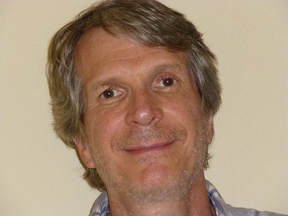 Mitchel Montagna is a corporate communications writer for a large professionals services firm. He has also worked as a special education teacher and a radio news reporter. His poetry has appeared in Naturewriting, The Penwood Review, Poetry Life and Times, and PEEKS and valleys. His fiction has appeared in Amarillo Bay. He is married and lives in New Jersey. |
Categories
All
|
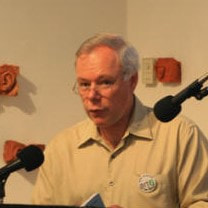


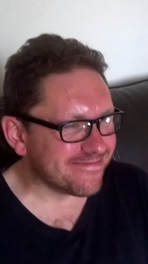
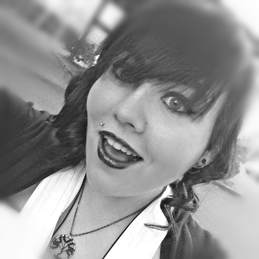

 RSS Feed
RSS Feed